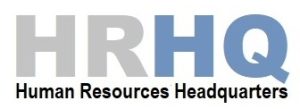by Colm Cavey, Professional Career Consultant.
I have attended many interviews over a long time as well as having been an interviewer on panels. Over the years I have watched with great interest the interviewing style of many from all walks of life and at various levels.
There is one thing that is certain in my mind and that is to fully understand the candidate, their abilities, their skills and to get a real sense of the kind of person they are, a respectful, well mannered and probing but not an aggressive style of interview works best.
Again and again, I have seen a very aggressive style of an interview conducted where the interviewee is purposely barraged with questions in a somewhat accusatory fashion which I believe promotes nothing but resentment from the candidate. They respond as best they can by presenting a hardened side to their personality in an effort to “keep up” with an intensive interviewer. 99% of the time this attitude does not reflect the candidate’s style or ability.
Some interviewers will claim this aggressive style of interview puts the candidate under pressure from which you can ascertain how they will react in a stressful or demanding environment and learn about their thinking process in extreme circumstances.
Aggressive interviewing tends to question the candidate’s skills, as skills are subjective and not based on a plain fact as a work experience issue would be. The aggressive, rapid-fire questions directed at the individual’s skills or lack of, borders on being personal and can be as hurtful as they are intended to be. The emphasis is to throw the interviewee off guard, confuse them with several questions and then watch how they respond. I just don’t subscribe to this style of interview.
“As you seem to have had a much protected lifestyle to date, do you really think you are capable of dealing with a group of hard-nosed sales managers whose only focus is to meet their targets. They will just walk over you to achieve this”.
“If I said you are a softie and not up to it, what would you say”?
“So far I find your reactions to my questions as being somewhat slow, are you really up to this?
“What made you think that you would be qualified for this job?
“Give me three reasons why you wouldn’t fire someone who wasn’t working out”.
When questions like this come in rapid fire succession, two at a time the very best of us will get stuck, confused or tongue-tied. What can also intensify the stress is if the ‘slow, silent’ tactic is also adopted. This style may take the form of no eye contact. On entering the room, the interviewer will just say, take a seat please without looking at you, and continue writing something for a minute or two in total silence. You will get an extended state before they speak and long silent delays between questions. All this is designed to unnerve you and for most, it will.
In the past, I have always found the best interviews were conducted or led by well experienced HR professionals within a company or by experienced recruiters on their behalf. These people have trained in HR practice and interviewing is a big part of that training. With experience behind them, these people have an instinctive ability to draw out the best in the candidate, relax them and allow them time to adjust to the interview panel, which will, in turn, enable the candidate to present and express themselves to best effect. The experienced interviewer will put the candidate at ease and in this manner draw out all the core/best information possible. However don’t think for one moment that this kind of interview is less probing: far from it.
When attending an interview do bear in mind that when you walk through the door of the meeting room, the interviewers will know all about you, but you will know little about them. That puts you at a disadvantage.
Whether your attendance is as a result of being referred by a recruiter or from a direct application to a company it is perfectly reasonable that you inquire who will be on the interview panel.
Knowing who these people are, will help hugely in your research before the interview day. You can log on to the company website and with luck learn a little about the person or persons that will be interviewing. If the position had been first introduced through a recruiter, then call them and ask who will be interviewing and who they are within the organisation. Most recruiters will be happy to help and give you as much information as you need. They are as keen to see you succeed every bit as much as you are yourself. The more you know about the interviewers, the better equipped you will be.
So what can you do at an aggressive interview once you detect that this is the style adopted? The short answer is not a lot, but in truth, the answer harks back to what I have said over and over again. Know and be 100% familiar with your career history and skill sets. That sounds obvious, but in fact, it is where most fall down. A few tricky questions you can get confused very quickly, get stuck and then lapse into silence. There is no excuse. If you write a C.V. saying “This is me and this is what I have done” and you then have difficulty talking about it, with ease then there is something wrong. Most likely it’s because you wrote the C.V. the day before, glanced it over and thought you knew it all. But do you? No, you do not.
Can you recall, immediately and recount in a confident and fluid fashion how much was the % saving on machine downtime after you introduced the new servicing software in the job you had before the current one, three years ago maybe?
That’s a bit of a mouthful, but if you can’t answer it or something similar as it might apply to you, then you really shouldn’t bother looking for a job if you are not prepared. When you are ready and know every detail of your career, events past and present and your skill sets, then and only then can you calmly respond to aggressive interviewing.
No matter what questions are asked, you will be able to respond with details of a past event or instance where you were involved, what you did and demonstrate that you are competent in that particular area.
With a store of well thought through and well rehearsed career information which you have brought up to date in your mind and freshly recalled, you could respond calmly, with confidence and with an immediate recall to almost any sharp-edged questions asked. The key is keeping calm; your knowledge is your ‘calm’.
If the interview is aggressive:
– At all costs stay completely calm, do not allow yourself to get riled.
– Respond to the full panel, looking from one to another as you answer and include everyone in your reply.
– Never, ever give a smart or short answer, no matter how tempted you may be.
– If your interviewer criticises another person or another company do not join in criticism of any kind.
– Do not ever show your frustration
– If there are long silent delays, make a small comment to the first person who looks at you. A harmless comment about anything at all.Just break the silence.
– Be respectful to all attendees.
– A smile from time to time helps when answering questions.
– After the interview, do not make comments about the interview to anyone until you have left the premises.
– At the first opportunity, maybe as soon as you sit in your car write down the main questions or subjects they asked. You may be so upset leaving the building you will forget most of the issues raised within minutes. Your notes will be invaluable if you are called back for a second interview as they will be a guide to the direction the next meeting may take.
I believe the aggressive interviewer is not energy well spent, in fact, I think this type of interview is frequently conducted by people who believe they are being very smart and more often than not just camouflaging their deficiencies
Keep calm and smile nicely from time to time. It will irritate an aggressive interviewer more than they irritate you. Then you can have a quite, private chuckle to yourself later on
Good Luck










